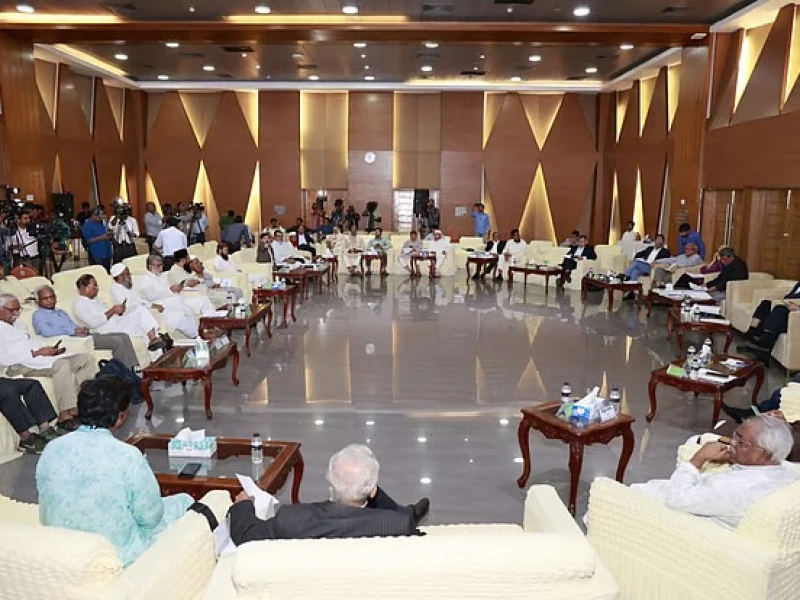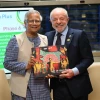The National Consensus Commission is set to send the final copy of the July National Charter to political parties today.
However, the document will not include any recommendations on how to implement the proposed reforms. The implementation roadmap will be submitted separately to the interim government and political parties and will not be considered part of the Charter itself.
After assuming office, the interim government initiated a series of reform efforts across key sectors of the state.
In the first phase, six reform commissions were formed — on the Constitution, electoral system, public administration, Anti-Corruption Commission, police, and judiciary.
The Consensus Commission then held two rounds of consultations — from February to July — with 63 political parties, reaching an agreement on 84 reform proposals. The July National Charter has been prepared based on these consensus recommendations.
The Charter is divided into three sections: the first outlines the background, the second lists the 84 reform proposals, and the third contains a seven-point declaration of commitment for implementation.
A formal signing ceremony for the Charter is scheduled for next Friday at the South Plaza of the National Parliament. Preparations for the event are already underway, with the Ministry of Cultural Affairs assisting the Consensus Commission in organizing the ceremony. Around 3,000 guests are expected to be invited.
Thirty political parties and alliances will be invited to sign the Charter. Earlier, the Commission requested each party to nominate two signatories, and all parties have already submitted their names. However, it remains uncertain whether all of them will eventually sign the document.
According to Commission sources, no further opinions will be sought from the political parties regarding the Charter. The version circulated on September 11 has essentially been finalized, with only minor linguistic edits.
The Commission had earlier sought party opinions on repealing Article 4(A) of the Constitution, which mandates displaying portraits of the Father of the Nation Bangabandhu Sheikh Mujibur Rahman in all government and private offices.
Most parties supported the repeal, but the provision has not been included in the final Charter. The issue will be left to the next parliament to decide.
The Commission had initially aimed to sign the Charter in July, but the process was delayed due to disagreements over its implementation mechanism.
Following demands from the BNP, Jamaat-e-Islami, and National Citizen Party (NCP), the Commission held formal and informal discussions with political parties and experts. During a meeting on October 9, consensus was reached on implementing the Charter through a referendum. However, differences remain among some parties over the timing, process, and questions to be put to the public.
Commission Vice-Chairman Professor Ali Riaz said, “The copies of the July Charter will be sent to political parties on Tuesday. The signing ceremony will be held on Friday. We hope to submit our recommendations on the implementation process to the government before then.”


 Prev Post :
Prev Post :
